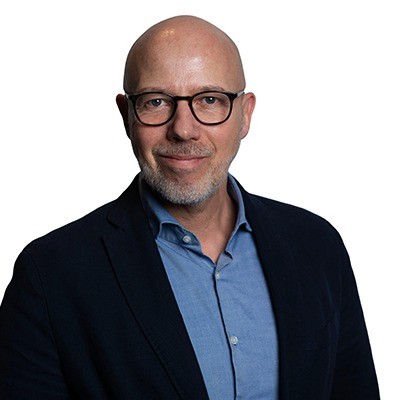The Human Leader: Key Role in Rehumanizing Work with Frank Kellenberg
Andy Storch had the pleasure of interviewing Frank Kellenberg, the Global Head of Culture and Inclusion at Sandoz, a leading Swiss pharmaceutical company. With over 20 years of experience in HR roles across various international companies, Frank shared invaluable insights into rehumanizing work within organizations and the pivotal role of leadership.
Here are actionable steps to help you foster a human-centered workplace, reflecting the principles discussed in this enlightening episode:
Rehumanize Leadership
Frank emphasizes the importance of rehumanizing leadership, putting individual relationships and human needs at the forefront. Leaders should strive to be authentic, open, and compassionate, fostering an environment of trust and genuine connection. Begin by encouraging leaders within your organization to adopt a human-first approach, prioritizing their team's emotional and psychological well-being above all.
Promote Diversity, Equity, and Inclusion (DEI)
According to Frank, DEI is not just a component but a cornerstone of company culture. Organizations must create an inclusive environment where all employees feel valued and can thrive. Implement programs that actively promote DEI, and ensure leaders are trained to understand and address the diverse needs of their teams. Using employee engagement surveys can provide the necessary data to identify areas needing attention and improvement.
Create Humane Work Environments
Employees crave workplaces where they feel included and respected. Leaders should focus on building environments that support self-determination and growth. Consider establishing forums and regular check-ins where employees can voice their concerns and ideas. Workshops and training programs should aim to foster self-reflection and personal development, reinforcing the human element in professional settings.
Engage in Continuous Learning and Openness
One of the major challenges for leaders is the pressure to have all the answers. Frank stresses the importance of continuous learning and openness. Encourage leaders to admit when they don’t have all the answers and to actively seek feedback and solutions from their teams. Use a co-creation approach in problem-solving, leveraging the collective intelligence within the organization to find innovative ways to move forward.
Implement Training and Workshops
To support leadership development, it's vital to provide training and workshops backed by data and scientific evidence. External partners can initially assist in designing and delivering these programs. Over time, transition to internal trainers to ensure consistency and sustainable growth. Focus on practical solutions derived from real-world feedback and employee surveys to address current issues effectively.
Develop a Human Leadership Model
Frank outlines a human leadership model consisting of three pillars: building trust and relationships, strengthening self and co-determination, and promoting growth and development. Leaders should work to build trust with their teams, empower members through autonomy and joint decision-making, and maintain a continuous focus on both personal and professional growth.
Adapt to Cultural Diversity
Frank's experience working across different cultures emphasizes the need for openness, observation, and continuous learning. Leaders should be prepared to adapt their approaches based on cultural contexts, respecting the unique perspectives and practices of diverse team members. Encourage cultural sensitivity by incorporating intercultural training and promoting a globally inclusive mindset.
Facilitate Cultural Transformation
A significant part of Frank's mission at Sandoz involved leading a cultural transformation. This process, which took two years, included developing a unique cultural identity distinct from their former parent company, Novartis. This transformation was guided by defining core values through workshops, focus groups, and surveys. Organizations seeking similar transformations should start by actively involving employees in the co-creation process to ensure the values reflect the collective vision.
Support Employees Through Transitions
Organizational transitions can be challenging, bringing about uncertainty and stress. Effective communication and leadership support are crucial during such periods. Leaders should ensure they provide clear, transparent information about changes and actively support their teams through the transition process, maintaining a focus on psychological safety.
By implementing these strategies and learning from leaders like Frank Kellenberg, organizations can create workplaces where employees feel valued, included, and motivated. Tune into the full episode on the Talent Development Hot Seat Podcast to dive deeper into these insights and transform your leadership approach for a more human-centered workplace.
Remember, rehumanizing work isn't just about adding more empathy—it's a strategic advantage in cultivating a thriving, engaged, and innovative workforce.
Frank Kellenberg has more than 20 years of leadership experience in various operational and strategic HR roles in international companies, including Hewlett Packard, Siemens, Ingram Micro, adidas, and Novartis.
Having worked for global organizations across Europe, Frank Kellenberg built his experience in culture, D&I, leadership development, talent management and organization development. He has a passion to drive innovation & change to help people & organizations to transform themselves to achieve goals. At the same time, he combines strategic and people-oriented thinking with a focus on operational excellence.
Frank has an MBA in Business Psychology and also holds a Master's Degree in Adult Education.

